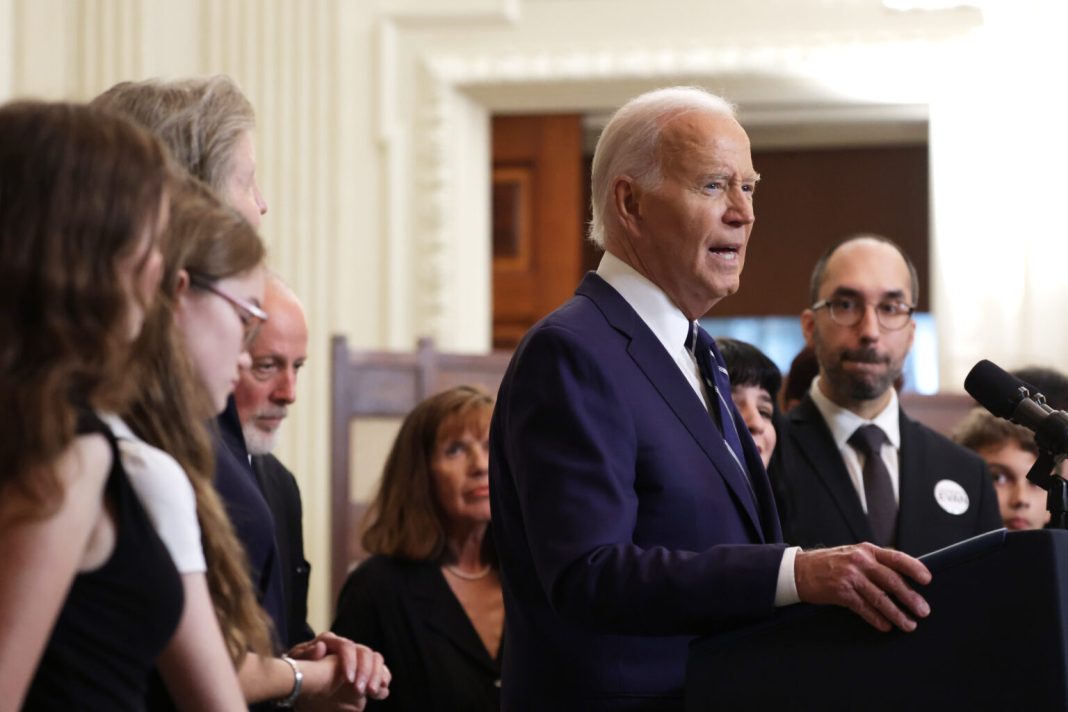 Title: Historic Prisoner Swap between the US and Russia: A Diplomatic Feat Amidst Tense Relations
Title: Historic Prisoner Swap between the US and Russia: A Diplomatic Feat Amidst Tense Relations
Introduction:
In a landmark prisoner exchange, the United States and Russia completed their largest post-Soviet swap, releasing journalist Evan Gershkovich, American citizen Paul Whelan, and several dissidents. The multinational deal, which secured the freedom of two dozen individuals, marked a diplomatic achievement for President Joe Biden’s administration. Despite the strained relations between the two countries, this prisoner swap showcased the power of backchannel negotiations and the importance of international cooperation.
1. The Context of the Prisoner Swap:
The swap occurred at a time when US-Russia relations were at their lowest point since the Cold War. Following Russia’s invasion of Ukraine in February 2022, tensions between the two nations escalated. Despite this, negotiators persisted in backchannel talks, exploring various exchange options, including Russian opposition leader Alexei Navalny. Ultimately, they finalized a 24-person deal that required significant concessions from European allies and secured the release of journalists, dissidents, and political prisoners.
2. Imbalance in Prisoner Exchanges:
While President Biden hailed the swap as a diplomatic feat, it highlighted an underlying imbalance in previous exchanges. The US and its allies often gave up individuals charged or convicted of serious crimes, while Russia released journalists and dissidents imprisoned under the country’s highly politicized legal system. This disparity underscores the challenges faced in negotiating such deals, where tough decisions and concessions are inevitable.
3. Release of Journalists and Dissidents:
Among the released individuals were Evan Gershkovich, a journalist for The Wall Street Journal, and Paul Whelan, a Michigan corporate security executive. Gershkovich, who was convicted of espionage charges that he vehemently denied, expressed gratitude for the support he received during his unjust detention. Whelan, who had been imprisoned since 2018, was also cleared of espionage charges. Their reunion with family members at Joint Base Andrews in Maryland was emotional and joyful.
4. Freedom for Dissidents:
The prisoner swap also extended to dissidents, including Vladimir Kara-Murza, a Kremlin critic and Pulitzer Prize-winning writer. Kara-Murza had been serving a 25-year sentence on politically motivated treason charges. Other released Kremlin critics included Oleg Orlov and Ilya Yashin, who were imprisoned for discrediting the Russian military and criticizing the war in Ukraine, respectively. This exchange showcased the international support for those who have spoken out against the Russian government’s actions.
5. Concessions Made by Russia:
In return for the release of the American prisoners and dissidents, Russia received individuals charged or convicted of serious crimes. These included Vadim Krasikov, convicted in Germany for killing a former Chechen rebel, and Roman Seleznev, a convicted computer hacker. The involvement of multiple countries in the swap, including Germany, Slovenia, Norway, and Poland, demonstrated the collaborative effort undertaken to secure the release of those wrongfully detained.
6. Criticisms and Future Considerations:
While prisoner swaps are celebrated, they have faced criticism for potentially incentivizing future hostage-taking and granting leverage to adversaries. The US government’s top hostage negotiator, Roger Carstens, defended the deals by emphasizing that the number of wrongfully detained Americans has decreased. However, there is an ongoing debate about the need to change the dynamics of these swaps to prevent the arrest of innocent people for geopolitical purposes.
Conclusion:
The historic prisoner swap between the US and Russia, amidst strained relations, exemplifies the power of diplomatic negotiations and international cooperation. The release of journalists, dissidents, and wrongfully detained individuals represents a significant step in protecting human rights and promoting justice. While the inherent imbalance in such exchanges is a challenge, it is crucial to continue working towards fair and mutually beneficial agreements that prioritize the safety and well-being of individuals caught in the crosshairs of geopolitical tensions.


